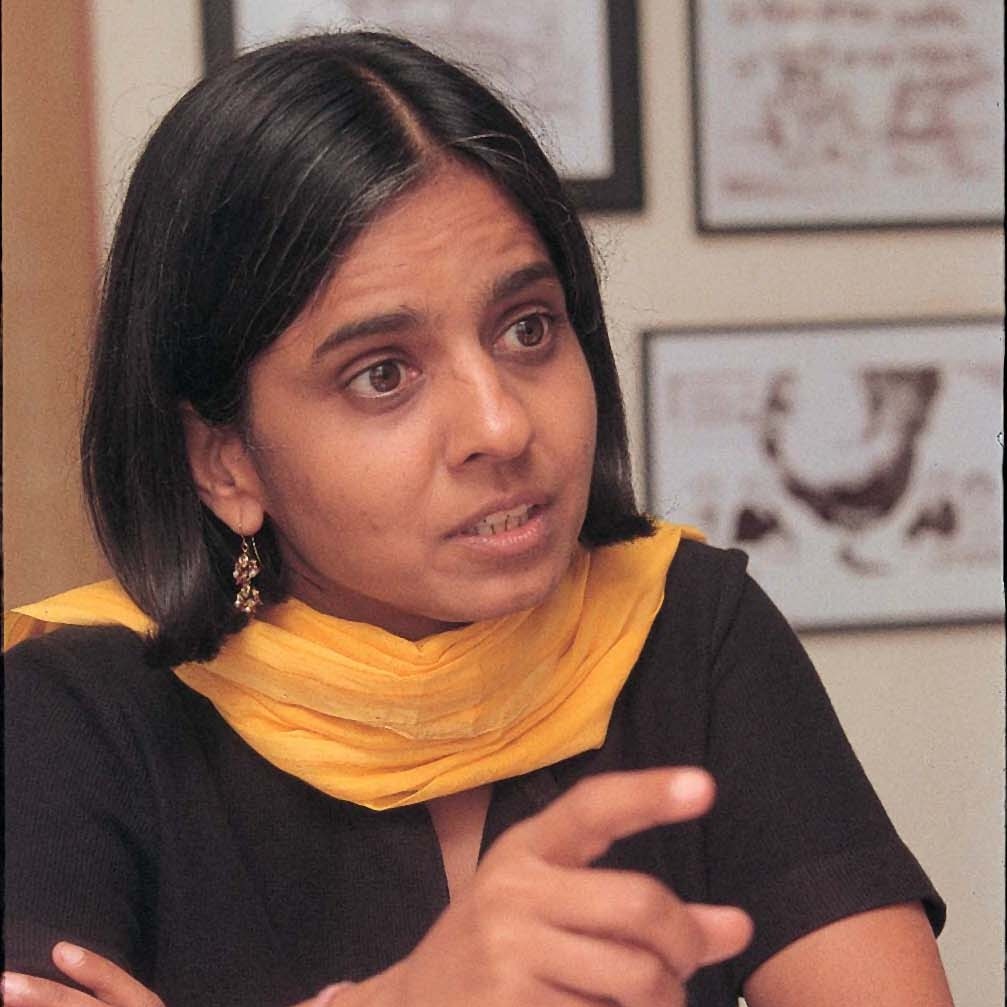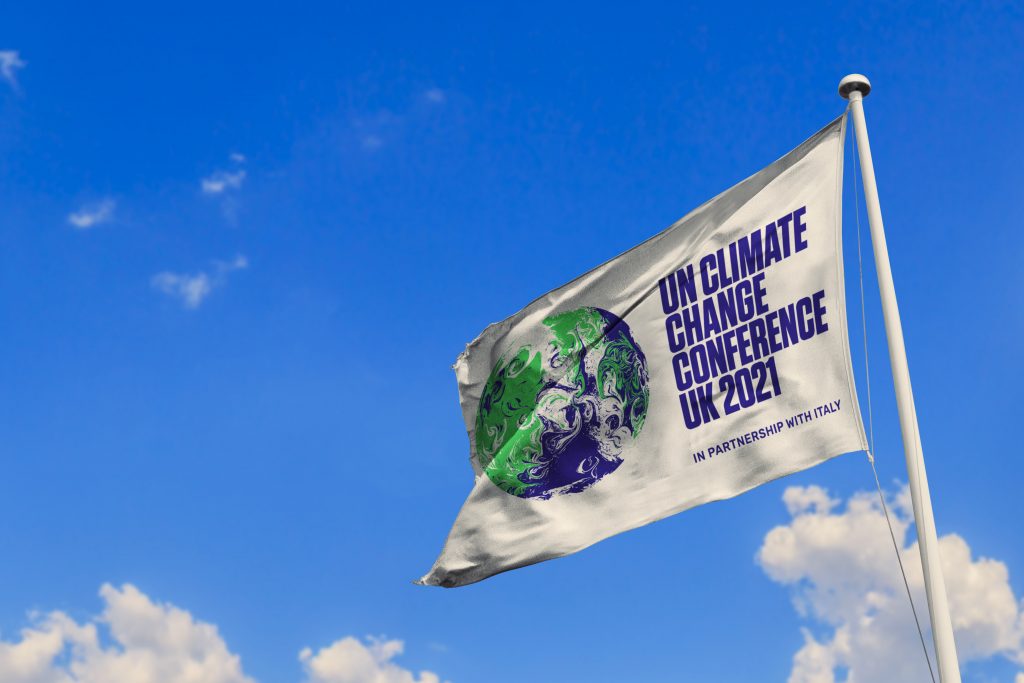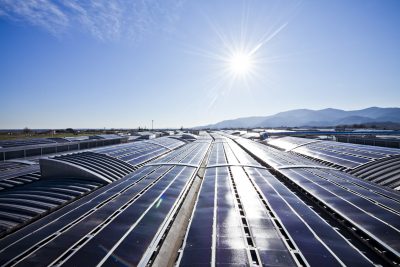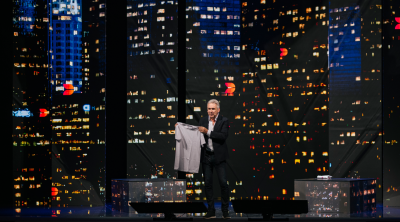A tireless campaigner for climate change, Sunita Narain believes in action that benefits all people in all countries, reports Future
Even with COP26, the United Nation’s 26th climate change conference held in Glasgow, Scotland, having drawn to a close, climate change remains headline news, globally. The COP26 summit aimed to bring parties together to accelerate action towards the agreed upon goals of the 2015 Paris Agreement; to unite people and inspire climate action. Beyond the global conglomerate of the United Nations (UN) advocating for change, the actions of individual climate change trailblazers help to humanize this, sometimes, overwhelming topic and pave the way for ordinary people to galvanise and act.
One sustainability pioneer is Sunita Narain, director general of the Centre for Science and Environment (CSE) in Delhi, India, and editor of the fortnightly magazine Down To Earth. Tirelessly working on the climate crisis agenda for over three decades, Time recently featured her as one of fifteen women leading the fight against climate change for her advocacy work around impoverished communities and environmental issues in India.
Speaking at a CCNow and Climate Central press briefing panel Narain discussed the importance of COP26, how the world can achieve 1.5°C, and her opinion on a carbon legacy – and the developing countries it impacts.
Down To Earth
An environmental-policy researcher since 1982, Narain has won awards for her work on issues ranging from rainwater harvesting, tiger conservation, and air-pollution mitigation. In 1985, she co-edited the State of India’s Environment report with Anil Agarwal, which highlighted the importance of sustainable development for third-world countries, kickstarting her trajectory as a high-profile climate activist. A prolific author and analyst, in 2005 Narain was awarded the Padma Shri civilian award by the Indian government, and later went on to receive the World Water Prize for her work on rainwater harvesting and for its subsequent policy influence in building paradigms for community water management.
Despite her impressive resume, for Narain, until effective climate action is implemented, she will continue to work tirelessly advocating for climate justice. Narain’s work centers around the concern that minority voices from the Global South are being drowned out in the climate-change dialogue. “You have to start talking about global rules that are equal for all,” Narain told the Climate Central briefing.
One venture she is particularly passionate about is Down To Earth, a daily-updated news platform and fortnightly magazine edited by Narain. Down To Earth aims to bring news, perspectives, and knowledge to prepare readers to change the world, with the belief that information is a driving force for the new tomorrow. Narain and her team’s main aim for Down To Earth is to raise awareness of climate inequality through regularly updated news content and dedicated climate issue magazines.
The unequal path to 1.5°C
The path to 1.5°C is the elusive phrase that dominated the COP26 talks. Globally scientists have agreed that keeping the global temperature rise below 1.5C is a safe limit for the world to avoid the worst environmental impacts. Significantly limiting the production of fossil fuels is a key contributing factor to tackling the climate crisis, and one Narain is incredibly impassioned about, however she acknowledges that current oil and gas production is not the only issue.
“Climate change is an extraordinarily inconvenient issue because it is not all about the coal, oil and gas of today, it’s also about the past,” said Narain. “The fact is the world has burned, and continues to burn, tons of coal for its wealth. Therefore, the question of keeping oil and gas in the ground is a ‘climate unjust’ debate.”
“Climate change is an extraordinarily inconvenient issue because it is not all about the coal, oil and gas of today, it’s also about the past. The fact is the world has burned, and continues to burn, tons of coal for its wealth. Therefore, the question of keeping oil and gas in the ground is a ‘climate unjust’ debate”
Sunita Narain
For Narain, to effectively tackle the climate debate we must address the inherent inequalities between countries of disparate wealth. Developed countries such as the United States and the United Kingdom, have a legacy of pollution dating from the industrial revolution and therefore have a duty to halting oil and gas excavation in order to address their past and present consumption. For developing countries in the Global South, such as Narain’s homeland India, simply shifting away from coal is not a straight-forward option.
“When talking about keeping fossil fuels in the ground, we must ask: what happens to energy access for the very poor in the world? There is no doubt that coal is a problem, but the debate has to move towards a real discussion that asks what the timeline we’re working to is so that the countries which use coal in the past phase it out completely.”
Advocacy work around impoverished communities has always been central to Narain’s personal sustainability ethos. Today, Narain calls for a discussion that tackles future energy needs on an individual country basis that addresses concerns such as energy scarcity and the need for clean energy in developing countries. “It’s not about charity, it’s about making sure that we have a planet in which we can survive together.”
“It’s not about charity, it’s about making sure that we have a planet in which we can survive together”
Sunita Narain
New energy for the future
Women bare a disproportionately sized burden of the global warming crisis, largely due to gender inequalities and traditional caregiver roles. The UN estimated that 80% of those who have been displaced by climate change are women. As outlined by Time magazine, women are uniquely situated to be agents of change in climate decision-making. “We need to give climate negotiations a human face; make people matter once again,” said Narain.
It is not only women that are the driving force behind recent climate action, but young people are helping to enthuse the sustainability debate with a newfound energy. “The sheer energy of people, especially young people across the world, has forced leaders to change,” she told the briefing.
The next hurdle will be maintaining this newfound energy and channeling it into effective climate change action that benefits all people in all countries. Narain reminds us that we live in an interdependent world reliant on the actions and accountability of others. “Climate change is something people need to understand now. We must not divert from our mission of saying: ‘Cut now, transform now.’”

About Sunita Narain:
Sunita Narain has been with the Centre for Science and Environment (CSE) since 1982. Narain is currently the director general of the Centre and the treasurer of the Society for Environmental Communications and editor of the fortnightly magazine, Down To Earth. Narain is a writer and environmentalist, who uses knowledge for change. In 2005 she was awarded the Padma Shri by the Indian government.






